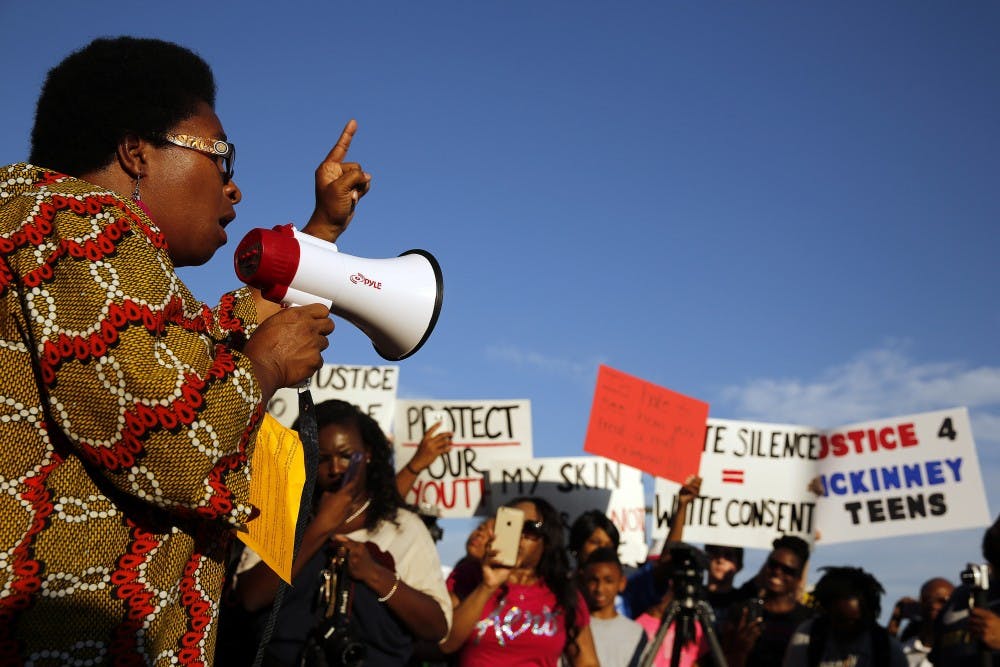Senate Bill 1054, introduced by State Senator John Kavanagh (R-Fountain Hills), would limit the recording of police within 20 feet. As a U.S. citizen who holds his First Amendment rights dearly, I’m horrified. As an aspiring journalist who believes records of public officials working on a public street should be public record, I’m disgusted.
But most importantly, I’m scared. The thought of making it more difficult to monitor the actions of police reminds me of an Orwellian nightmare; it's 2016, not 1984. We should be striving for more transparency, not less.
Would we know who Eric Garner was, or how he was choked to death in public by officers if this law had been in effect in New York? Eric Casebolt may still be entrusted with protecting the peace in Texas had a video not surfaced of him forcefully detaining a 14-year-old girl last year, forcing his resignation. This isn't to say that all police officers are to blame. I'd venture to say the vast majority of police are following regulations. This article is about the importance of transparency and constitutional rights, not police bashing.
There is plenty of judicial precedence that supports the public’s right to film police activities. It surprises me that the Arizona legislature thinks they can redefine what the First Amendment means.
In fact, in 2011, a man named Simon Glik witnessed Boston Police officers using excessive force during an arrest in Boston Common. Glik decided to start filming after he heard bystanders tell the police they were hurting the man. Once police arrested the individual, they arrested Glik. He was charged with violating a wiretapping law, and he was 10 feet away from the incident.
The First Circuit Court of Appeals later ruled that the officers had violated Glik’s constitutional rights. The court held that citizens have the “right to film public officials in a public place.” It’s not just the First Circuit that has held rulings protecting your right to film police. The Seventh, Ninth (which Arizona is a part of) and Eleventh Circuits have all held similar rulings in similar cases.
This isn’t the first time that the Arizona legislature has attempted to shield police from public scrutiny. Last year, they attempted to pass a law that would require all body camera videos to remain under court seal until they were subpoenaed in court. What good is body camera footage that the public can’t see?
Attorneys even question the necessity of S.B. 1054, with many saying that police can already arrest people who are obstructing an arrest. Furthermore, they also contend that 20 feet is unenforceable; how am I supposed to measure that out before I start filming? I don’t think that many people are running up to police to get a close up while nightsticks and mace are flying freely.
Kavanagh says that the law would exist to prevent officers from getting “distracted” while making an arrest or performing their duties. However, if regulations are being followed, it shouldn't be a distraction to be filmed from within 20 feet. Even 10 feet is plenty of space.
Public trust in the police has been falling in recent years. The bottom line is these are public officials that we trust with protecting us; they answer to us. The legislature may want to ignore the First Amendment, but at the end of the day, the answer to: “Who watches the Watchmen?” is … “Me.”
Reach the columnist at cjwood3@asu.edu or follow @chriswood_311 on Twitter.
Editor’s note: The opinions presented in this column are the author’s and do not imply any endorsement from The State Press or its editors.
Want to join the conversation? Send an email to opiniondesk.statepress@gmail.com. Keep letters under 300 words and be sure to include your university affiliation. Anonymity will not be granted.
Like The State Press on Facebook and follow @statepress on Twitter.
Related Links:
Police brutality protests decline, ASU students say issue still important
ASU Police introduces body cams for added transparency




